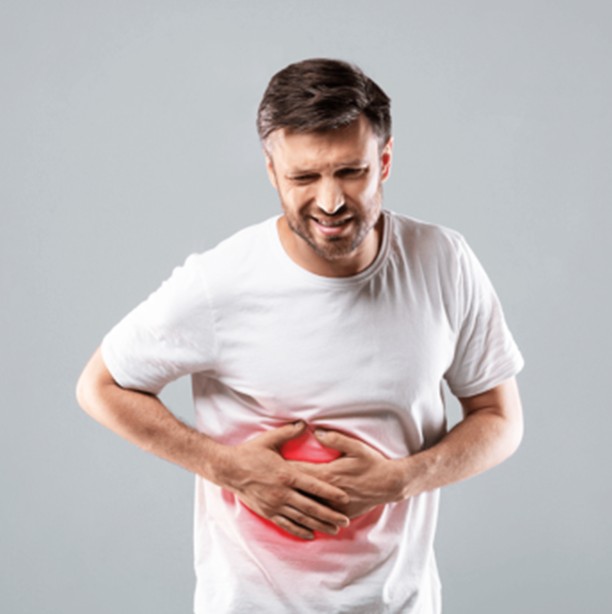Bloating and passing gas can be uncomfortable and embarrassing. Here’s what you need to know.
What is gas?
Gas is a normal part of healthy digestion. Air that is in your digestive tract is either released through your mouth as a burp or through your anus as gas. You typically pass gas 13 to 21 times a day.
What causes gas?
Gas is created when you swallow air, such as when you eat and drink. But it’s also a byproduct of the breakdown of food. Some foods cause more gas than others. You may also be more sensitive to particular foods and may have more gas when you eat them.
Taking some medications can also cause gas.
Which foods cause gas?
You’ve probably noticed you feel gassy after eating certain foods. Cut back on the common culprits:
- Apples
- Asparagus
- Beans
- Broccoli
- Brussels sprouts
- Cabbage
- Cauliflower
- Milk and dairy products
- Mushrooms
- Onions
- Peaches
- Pears
- Prunes
- Wheat
What causes bloating?
When gas builds up in your stomach and intestines, you may have bloating – swelling in your belly and a feeling of fullness. It may happen to you more often if you have:
- A stomach infection
- Irritable bowel syndrome (IBS). This digestive condition causes stomach pain, cramping, and diarrhea or constipation.
- Celiac disease. When people with this condition eat gluten, their bodies produce antibodies that attack the intestinal lining.
- Hormonal changes that happen around women’s periods
- Constipation
While bloating is usually just uncomfortable, it can sometimes cause pain in your belly or sides.
How can I reduce gas and bloating?
Diet and lifestyle changes can make a big difference:
- Cut back on fatty foods.
- Avoid fizzy drinks.
- Eat and drink slowly.
- Quit smoking.
- Don’t chew gum.
- Exercise more.
- Avoid foods that cause gas.
- Avoid sweeteners that cause gas such as fructose and sorbitol. They are often found in candies, chewing gum, energy bars, and low-carb foods.
Heartburn
What is heartburn?
Heartburn, sometimes called acid indigestion, is a painful, burning feeling in the middle of your chest or the upper part of your stomach. The pain, which can also spread to your neck, jaw, or arms, can last just a few minutes or stick with you for hours.
What causes heartburn?
There’s a muscle at the entrance of your stomach, called the lower esophageal sphincter (LES), that acts like a gate: It opens to let food move from your esophagus to your stomach, and it shuts to stop food and acid from coming back out.
When the LES opens too often or isn’t tight enough, stomach acid can rise up into the esophagus and cause the burning feeling.
What triggers heartburn?
Triggers vary from person to person, but you may be more likely to get heartburn when you:
- Overeat
- Eat spicy, fatty, acidic, or greasy foods
- Consume caffeine or alcohol
- Smoke
- Lie down shortly after you eat
- Are under stress
Who gets heartburn?
Some people have a higher risk of heartburn, including those who are:
- Smokers
- Overweight
- Pregnant
- Have a hiatal hernia, where the stomach bulges up into the chest through an opening in the diaphragm
How should I change my diet to avoid heartburn?
You might have noticed that your heartburn gets worse when you eat or drink certain things. Here are a few that can trigger heartburn:
- Alcohol
- Chocolate
- Coffee
- Fatty or fried foods
- Greasy foods
- Onions
- Oranges, lemons, and other citrus fruits and juices
- Vinegar, hot sauces, and salad dressings
- Peppermint
- Sodas and other bubbly drinks
- Spicy foods
- Tomatoes and tomato sauce
Big meals can also set off heartburn. Instead of eating three big meals a day, try to eat several small meals throughout the day.
What else can I do to prevent heartburn?
Here are a few steps to try:
- Lose weight if you’re overweight. Extra pounds put pressure on your stomach, forcing more acid up into your esophagus.
- Wear loose clothing. Tight clothes that press on your stomach can trigger heartburn.
- If you smoke, quit. Cigarette smoke relaxes the muscle that prevents acid from backing up into the esophagus. It also may increase how much acid your stomach makes.
- Check your medicines. Regular use of anti-inflammatory and pain medicines (other than acetaminophen) contributes to heartburn.
- Avoid high-impact exercise.
If heartburn bothers you at night:
- Eat a light dinner and avoid foods that trigger your heartburn.
- Don’t lie down for at least 2 to 3 hours after you eat.
- Use blocks or books to raise the head of your bed by 4-6 inches. Or put a foam wedge under your mattress at the head of the bed. Sleeping at an angle will help stop acid from backing up into your esophagus.
Credit: webmd









